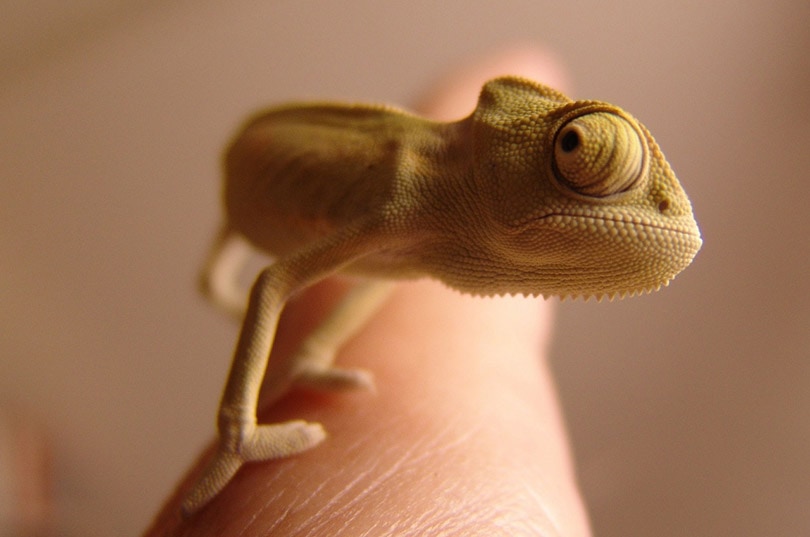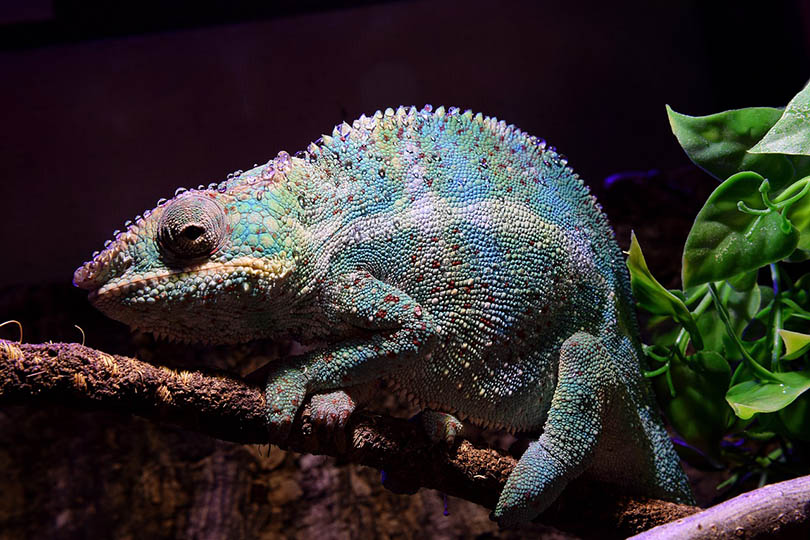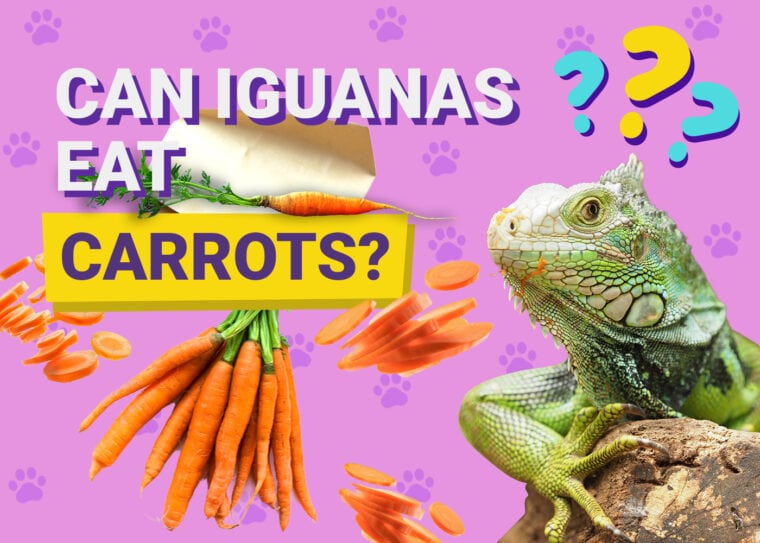
Iguanas are fantastic reptiles that are reminiscent of dinosaurs, which leads many to believe they are predatory and carnivorous. However, it’s important to recognize that iguanas are primarily herbivorous. This means that their diet should primarily consist of plant matter with very few non-plant foods. Feeding a balanced diet is the key to good health, so many people feed their iguanas things they have in their own refrigerator for themselves. This leads many people to wonder if their iguana can eat some of the common foods found in people’s homes, like carrots. We can assure you, that iguanas can eat carrots. Here’s what you need to know about feeding carrots to your iguana.
Can Iguanas Eat Carrots?
Iguanas can eat carrots. This is one of a long list of foods that are recommended as food for iguanas. In fact, carrots are included in some “emergency” recipes for iguanas when their normal food has run out and you can’t get to the store for more food.
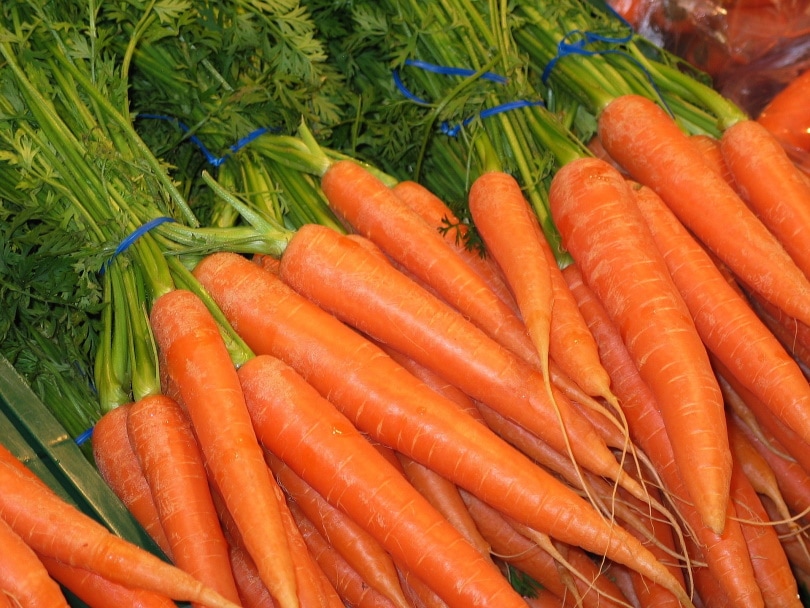
Are Carrots Good for Iguanas?
Carrots are good for iguanas when used as part of a balanced diet. Carrots are rich in beta-carotene, vitamin C, vitamin A, and antioxidants. They are low in phosphorus and oxalates. Oxalates can be dangerous to reptiles due to their ability to block calcium absorption. Calcium is a necessary nutrient to maintain the health of reptiles. Carrots are also low in compounds that can harm the thyroid, which controls a number of necessary body functions.
What Should an Iguana’s Diet Consist of?
Almost the entire diet should consist of vegetables and fruits, and the majority should be leafy greens like dandelion greens, turnip greens, Bok choy, and romaine lettuce. Anywhere from 80 – 90% of the diet should consist of veggies with leafy green veggies making up the majority. The rest of the diet should be a combination of other veggies, fruits, and supplements.
Calcium and a multivitamin should be provided as supplements approximately three times per week, but your exotics vet can help you know exactly how these supplements should be fed. The additional 10 – 20% of the diet should consist of fruits and treats like edible flowers. Legumes, like boiled lentils and kidney beans, can be offered as an occasional treat to juvenile iguanas that are still growing.
Carrots can be fed as part of the diet that isn’t leafy green veggies. Other vegetables that can be included are okra, winter squashes, bell pepper, green beans, and parsnips. Fruits that are safe for iguanas include bananas, berries, and melon, but these foods should be offered in moderation as a treat. Other foods that are appropriate for iguanas include hibiscus flowers, lima beans, corn, and commercial iguana food.
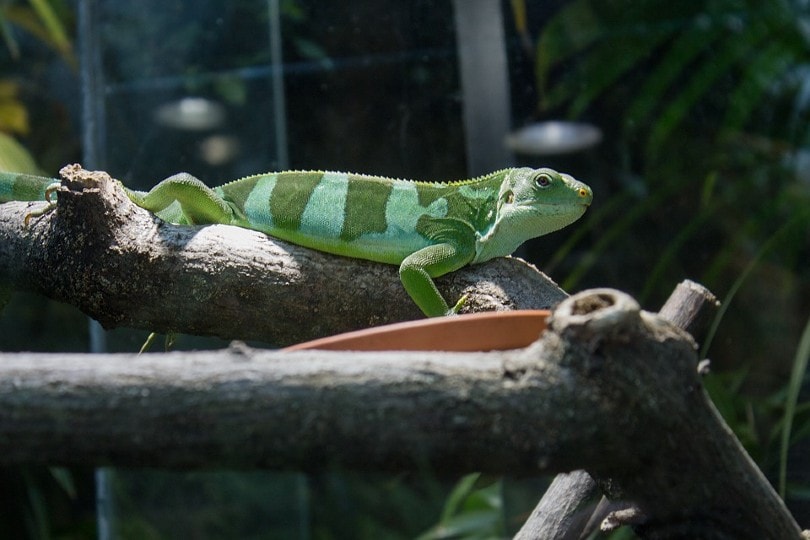
How Can I Feed Carrots to My Iguana?
Iguanas eat their food whole without chewing it, so any food offered to your iguana should be chopped into bite-sized pieces. Carrots are no exception to this. They can be fed raw, which is ideal since cooking can reduce the levels of nutrients in food. Chopped or shredded carrots can be added to a mixture of other veggies being offered to your iguana.
Carrots shouldn’t be fed on a daily basis since the daily diet should consist primarily of leafy greens. It generally recommended to feed these non-leafy green veggies 3 – 4 times per week, but this will vary based on the age and health status of your iguana. Your iguana’s veterinarian will know your iguana’s nutritional needs best.
If you’ve run out of leafy greens and don’t have commercial iguana food on hand, you can offer a mixture of carrots and other veggies to your iguana as a meal to replace the missing leafy green veggies. A good mixture of veggies that provides a tasty, nutrient-dense meal to your iguana is carrots, lima beans, green beans, corn, and peas. If needed, you can offer these foods from a thawed frozen food mixture. They should be room temperature when offered to your iguana. Don’t feed frozen or heated veggies to your iguana since the temperature extremes can cause injury and alter nutrient bioavailability.
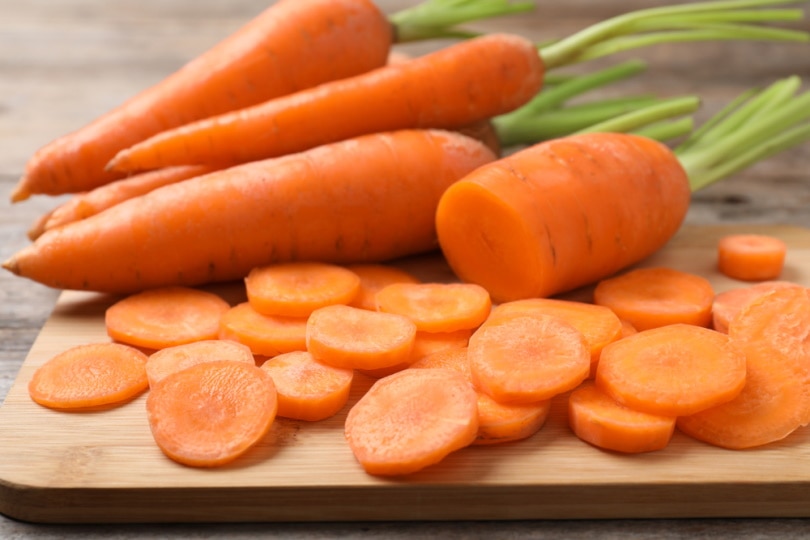
In Conclusion
Carrots are a wonderful addition to a varied diet for your iguana. They are a healthy food option that is rich in antioxidants and necessary vitamins and minerals. Their low oxalate content is great for kidney health and calcium absorption, and their low levels of goitrogens means they won’t harm your iguana’s thyroid function. Carrots are a tasty food that many iguanas enjoy eating, so you shouldn’t have any difficulty convincing your iguana to give carrots a try. Make sure to chop or shred carrots into bite-sized pieces for safety.



